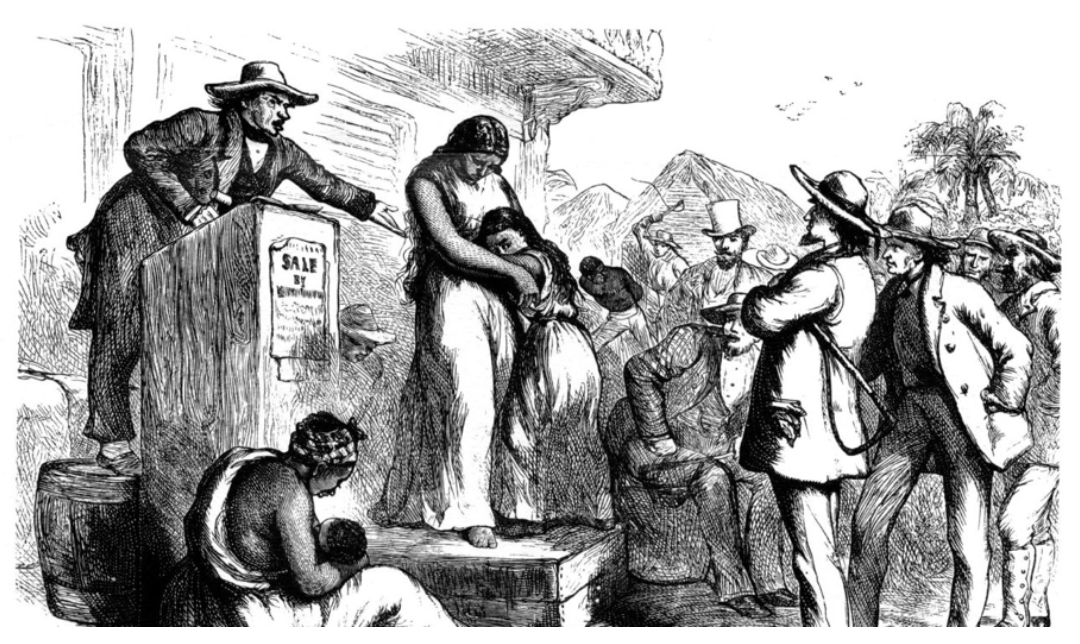Introduction
Various genres are present in the Old Testament. Poetry/Wisdom, by itself, represents one-third of the Hebrew Old Testament. That genre is more prominent in a particular group of books which comprises Psalms, Job, Proverbs, Ecclesiastes and Song of Songs. Some of these books are exclusively written in poetic form, namely Psalms, Proverbs and Song of Songs. Their grouping has to do both with their genre and the abundant wisdom which they display. Thus, they are also known as Wisdom Literature.
As such, there is a lot to learn in these books about our relationship with God and with one another. In this paper, I will address the interpretive conventions in relation to these books, their historical and cultural context, the theological messages or themes therein and finally, the application of their theological themes to Christian life. In so doing, I will consider both the genre as well as the specificities of each book under study.
Interpretive Conventions Unique to Poetry & Wisdom Literature
Hebrew poetry is based on “thought lines” and not necessarily on rhymes or the phonetic coupling of words. Greater focus is put on what is said and how it is said. According to John Philipps, an idea that is stated one way is repeated in another and this is done in three ways : synonymous parallelism, antithetic parallelism and synthetic parallelism. Warren W. Wiersbe adds one more layer, namely climactic parallelism. Considering the book of Psalms, he observes:
“If the second line repeats the first line in different words, as in Psalm 24:1-3, you have synonymous parallelism. If the second line contrast with the first, as in Psalms 1:6 and 37:9, it is antithetic parallelism. When the second line explains and expands the first, the writer has used synthetic parallelism (Ps. 19:7-9), but when the second line completes the first, it is climactic parallelism…. To interpret Psalm 103:3 as God’s promise to heal every sickness is to ignore the synonymous parallelism of the verse: the forgiveness of sins is like the healing of disease (see Ps. 41:4) “.
Modern linguistic terminology and methodology can greatly facilitate the understanding of poetry in the Old Testament. Failing to take these conventions into account may lead to a flawed interpretation of this kind of genre. Another common mistake in interpretation is to take every passage in the Bible literally or as a promise from God. This happens often when reading Proverbs as promises from God rather than understanding them as universal precepts or principles.
Even when poetry is present in all the five books, Psalms and Song of Songs are better classified as devotional literature. The book of Psalms emphasizes devotion of man to God while Song of Songs considers the devotion or dedication of a man to a woman and vice versa. Part of them include wisdom literature. As for Job, Proverbs and Ecclesiastes they are understood as wisdom literature as opposed to the genres present in the Torah, history books and the prophets. The concept of wisdom in Jewish literature refers to skills for living. Skill can be both abstract like insight into teaching or raising children or more concrete like knowing how to build a temple. Nevertheless, the focus of wisdom literature is always on God. Thus, the authors of these books offer their perspective of life, more especially on how one ought to live in the face of God. Henry W. Holloman asserts that: “The ultimate pattern for wisdom is God’s wise and righteous prudence. The requirement for wisdom most frequently repeated in Scripture is to have a godly referential fear of the Lord. Fearing the Lord is the essence and the exhibit of wisdom.”
The purpose of wisdom is actually to provide insight into the human experience and present precepts or principles to guide one’s conduct with a special focus on the fear of the Lord, understood as the beginning of wisdom or knowledge. Approaching wisdom literature, the reader is invited to consider the importance of wisdom as something that must be sought at all cost and acquired for it is useful in many regards.
Hill & Walton pointed out : “Wisdom literature may be didactic or instructional in nature, or argumentative in a reflective or speculative sense” . Such diversity of approaches is found clearly in the various books that categorized wisdom literature. The book of Proverbs is more didactical. It is about instructions on how to live upright, how to raise children, how to find a good wife, how to be a good steward, etc. In contrast, Job and Ecclesiastes are more reflective and speculative in nature. They offer a certain perspective on existential questions or real life issues such as suffering, injustice, the deception of pleasure, etc.
Historical and Cultural Context
Ancient Near East seems to be a cradle for the fruition of poetry literature. Poetry works can be traced as early as 3200 BC; A triumph hymn for the pharaoh was found at that time revealed how Egyptians mastered that art. Hill & Walton note that both poetic couplets and matching couplets appeared as early as 2350 and 2300. Israel has indeed benefited from ancient Near East literary tradition. In fact, many similarities are found between Hebrew poetic literature and that of other nations in the region. Among the materials that bear similarities can be cited:
- Psalm 104 and the sun hymn of Akhenaten
- The Egyptian love songs of the New Kingdom and Song of Songs from the Bible
Similarities are also found between Ugaritic poetry (dated 1400-1200 BC) and Hebrew poetry. For example, Walton & Hill cite, the identification of hundreds of parallel (or A/B) word pairs that also occur in the Hebrew poetry indicate that Old Testament poets used a common parallels poetic tradition.
The same observation is made regarding Hebrew wisdom literature and Egyptian wisdom literature. Portions of the “Teaching of Amenemope”, an Egyptian sage writing near 1200 BC, exhibit remarkable similarities in language and theme with the “Sayings of the Wise in Proverbs (22:17-24:23) as noted by Walton & Hill. It is all about instructions of a father to a son in regards to how to behave or handle the administration of the monarchy. The same can be said between Hebrew wisdom literature and Mesopotamian wisdom literature. Without a shadow of a doubt, ancient Near East literature has had some influences on Hebrew literature.
Nevertheless, there is significant difference in the aim and purpose of these literary works. Ancient Near East literature aims at praising deities in their pantheon or providing instructions leading to earthly gains. Contrarily, Hebrew poetry/wisdom literature aims at glorifying God. And this is possible because He has revealed Himself at the first place. He has revealed Himself as the Creator of the universe and all therein. As such, He owns everything and every being. Consequently, He is to be feared in the sense of revered not for what one may get out the process of worship, but because of who He is - The great I AM. Such expression of God is found throughout the Bible, particularly in poetry & wisdom literature.
Theological Themes and Messages
Each of the five books that constitutes Poetry & Wisdom Literature refer to a particular theme and convey a specific message.
Psalms: Praise the Lord
It is important to note that the book of Psalms is more than a hymnal or a book of prayers. Not all Psalms are prayers. Some are just a recollection of stories similar to stories told in the narratives of Samuel and Kings. As John H. Walton, et al, pointed out: “There are many ways to tell a story. Some are told through narrative, others through song” . As a narrative, the psalms bring to the scene different people in various circumstances in relationship to God. Some people are seen crying to God for deliverance while others are giving praises to God, their deliverer. Some are seen exalting God for His majesty and glory while others are on the verge of discouragement and are looking to God to uplift them and give them hope for the future. Some are seen lamenting because they have sinned against God while others are rejoicing in His presence because they have been forgiven.
John Philipps, captures the beauty of the book of Psalms as follow: “For the psalms touch all the notes in the keyboard of human emotion. Here, we have love and hate, joy and sorrow, hope and fear, peace and strife, faith and despair. This is the stuff of which life is made. No wonder God’s saints in all ages have felt the tug of the psalms. The book is a vast storehouse of human experience” .
Therefore, the book of Psalms should not be approached as a book of prayers or petitions. There are messianic psalms that points to the Lord Jesus Christ. Others are about laments, praise and thanksgiving, royal psalms, wisdom psalms, imprecatory psalms, penitential psalms, etc. Independently of the nature of the psalm, they all seem to point toward one direction namely God and the necessity to worship Him for who He is and what he has done. For He is good!
The messages of the book of Psalms vary according to the type of psalms in presence. Nevertheless, the key message remains: God reigns. He reigns over the creation, the nations of the world, Israel and His believing people. Warren W. Wiersbe paints the following portrait of God as described in the book of Psalms : “He is seen as a powerful God as well as tenderhearted Father, a God who keeps His promises and lovingly care for His people” .
Song of Songs: The celebration of love and sexuality
The book is written in the love literature genre. It is also written metaphorically as it pictures a love story between a shepherd and a Shulamite. Love plays a major role in Song of Song. God is not mentioned in that book at all. The book itself is not quoted or referred to neither in the books of the Old Testament nor in the New Testament. While some may wonder how come Song of Songs is part of the canon or included in the Bible, John Philipps emphasized that:
“We feel instinctively that there is more to this book than meets the eyes. In some ways it is like the parables of the Lord Jesus – an earthly story with a heavenly meaning. This love song probably has a historical basis. Still, we are confident that this song is more than a mere sentimental ballad. No mere song, however moving and beautiful, could stand shoulder to shoulder with Isaiah, for instance, unless it had some deep spiritual truth to impart” .
The beauty and the sacredness of the love relationship between two people in that book can easily be assimilated God and His people. The book is a celebration of the power and beauty of love between a man and a woman that reflects God. Metaphorically, the Bible compares the marriage relationship between a man and a woman with the relationship between the church and Jesus. If the book is about love, it is in fact about God since God is love.
The song is interpreted as God’s love for His people Israel in the Jewish tradition and as Christ’s love for the church in the Christian tradition. The book is also about wisdom literature. John H. Walton, et al, put it like that: “The love songs preserved in this book illustrate different faces of love’s power. A wise person must be aware of that power and recognize its faces and its dangers” . In that sense, Song of Songs deals with a set of expectations when it comes to sexuality or marital relationship that a wise man will make sure to take into account. Nevertheless, in contrast to the book of Proverbs which presents a negative view of sexuality, Song of Songs introduces the subject in a more balanced or positive perspective.
Proverbs: The fear of the Lord is the beginning of wisdom or knowledge
The book of proverbs addresses the standard that whoever fears the Lord needs to adopt. The fear of the Lord is present in both the prologue and the epilogue. It presents a series of rules or principles for right living or wise conduct because of the fear of the Lord. Whosoever pursuits wisdom would be rewarded favorably. The reverse is also true, in a sense that whosoever despises wisdom or chooses folly will suffer the consequences. The book basically contrasts the wise man and the foolish man. John Philipps stated : “The difference between the two will be brought into focus around two basic principles : reverence for God and respect for authority” . The fear of the Lord is about having the right attitude vis-à-vis God’s covenant. And, it is indeed the beginning of wisdom. Such wisdom is as important to possess as it is to communicate it to future generations. The book of Proverbs emphasizes greatly instructions that need to be passed on from father to son or from teacher or master to student.
All countries have proverbs. But they represent for the most, sage human sayings. But proverbs in the Bible are far more than that. As John Philipps noted: “They embody the philosophy of heaven for the benefit of people living on earth” . Furthermore, the instructions that are seen in the book of Provers are so similar to wisdom literature in Ancient Near East that a case can be made for the fact that objective moral values are not invented but discovered. People may decide not to live wisely, but nevertheless, they have built-in knowledge in terms of what acceptable behaviors they need to uphold.
There is also the assumption that when the instructions are followed or when one chooses to live wisely, a reward is to be expected. Maybe that explains why the instructions in the book of proverbs are often considered as promises when in fact they are just principles. Both the letter and the spirit of the book of Proverbs assume that good things happen to good people (the righteous) and bad things happen to bad people (the wicked). A different perspective is offered in the book of Ecclesiastes.
Ecclesiastes: Meaning of life is only found in the fear of the Lord
The book of Ecclesiastes introduces the idea that sometimes the righteous get what the wicked deserve and the wicked get what the righteous deserve (Ecclesiastes 8:14). Such prospect makes life unfair and all the more meaningless, from the perspective of the Qoheleth, the teacher. The latter spent considerable amount of time observing reality, under the sun, and concluded that all is meaningless, a chasing after the wind. In this context, the best thing someone can do is to enjoy life before going to the place of no return, which is death.
Why does God allow the wicked to prosper? It is a question that haunted Asaph (Psalm 73), Jeremiah (Jeremiah 12), Habakkuk (Habakkuk 1) and Job (Job 21). But they reached a different conclusion to that of Qoheleth. The reason is that Qoheleth was considering a universe where God is not at work or present. Thus, the constant saying: “under the sun”. In the face of injustice with no prospect of a final judgment, life is indeed meaningless or absurd.
This is the same conclusion that existentialist philosophers like Jean Paul Sarthe, Albert Camus and Friedrich Nietzsche arrived at when they failed to include God in the equation of life. William L. Craig, posits that: “if there is no God and no immortality, life becomes absurd”.
At first, it seems like meaning of life in the book of Ecclesiastes is understood as enjoying life from the perspective of the Epicurean dictum: “Eat, drink and be merry for tomorrow, we die”. Since everything is meaningless and we have a short life to live, the focus on the “here and now” is to be appreciated. At least, that’s what we learn in the autobiography of the Qoheleth. Nevertheless, both the prologue and the epilogue of the book emphasize something quite different about meaning of life. It is more about fearing the Lord and observe His commandments. One cannot live a meaningful life without the fear of the Lord. The autobiography in between the prologue and epilogue is the evidence confirming the aforementioned statement.
Qoheleth had everything going for him but yet, his life had no meaning. He could enjoy power, prosperity and pleasure but he went on to say: “I hated life” (2:17). The fear of the Lord is what ultimately provides meaning in life and this is what, between the lines, the book of Ecclesiastes is teaching about. Fearing the Lord does not necessarily exclude the enjoyment of life but conveys the message that everything comes from the hand of God. John H. Walton, et al, summarize the message of Ecclesiastes this way : “Both prosperity and adversity are normal and come from His hand. Both can shape us in important ways” . Job is a great example of a man who has been shaped both by prosperity and adversity. And afterwards, he came forth as gold (Job 23:10).
Job: God’s sovereign wisdom and justice as the foundation in the operation of the world
Job is about the problem of suffering and God’s justice. The understanding of Job’s friends regarding his predicament is that he must have sinned against God. One of his friends even went on inventing sins to accuse Job in order to make sense of what was happening to him. For good things happen to good people and bad things happen to bad people. Such was the popular wisdom at that time.
Ancient Near East beliefs support the idea that suffering is a result of deities that may have been offended and therefore need to be appeased by an offering. Hill & Walton make reference to a Sumerian work entitled “Man and His God” (Ur III period, about 2000 BC) in which is counted a monologue by a person who does not understand why he is suffering. At the end, he is shown what his sin was and therefore concludes that there is no such thing as undeserved suffering” . Other similar monologues are found in ancient Near East. All reach the same conclusion, namely: there is no such thing as undeserved suffering or a righteous sufferer. It is interesting to note how that belief lingered on even in the time of Jesus’ ministry on earth. His disciples, confronted to the fact that a man was born blind, asked him, who sinned as an explanation for the blindness of that man (John 9:2).
The story of Job stands tall against the belief that there is no underserved sufferer. God Himself testified that Job was blameless and upright, a man who fears God and shuns evil (Job 1:8). While Job appears to be the central person of the book, in reality God is the main actor. John H. Walton, et al, state that “Job and his friends all believe that he is on trial, but the secret is that God’s policies that are on trial” . God appears to be at work at the beginning and also at the end. In the beginning, God, purposefully, allowed Job to be tested and in the end, He reveals Himself to Job through His wisdom as displayed in creation. In God’s revelation, it became clear that His justice cannot be reduced to a simplistic retribution formula, as expressed in the discourses between Job and his three friends.
God’s policies of blessing that was on trial have been vindicated at every turn. On the one hand, by maintaining his integrity in the face of adversity, Job demonstrated that he was not being righteous because of the blessings that he could reap in the process. On the other hand, If Job could have suffered that much while being blameless and upright (in God’s eyes), it is evident that blessings are not necessarily a reward for righteousness. Job’s charge of injustice was not sustained because he did not have all the information regarding the purpose of his suffering. The world is showed to be quite a complex entity for someone to have all the information to make a judgment call about God’s justice. Nevertheless, the complexity of the world implies that God has to be wise and equally just.
Life Application
Wisdom is often understood as applied knowledge. How we apply the knowledge expressed in the aforementioned themes is of great importance.
Psalms: Praise the Lord. God’s majesty and goodness are revealed in the psalms in extraordinary ways. He has revealed His majesty and His goodness throughout the creation by preparing a wholesome environment for man; Also through the redemption that was planned and executed by Him. The psalms provide an invitation to seek Him wholeheartedly, to worship Him, to praise Him for who He is and also for what He has done. He cares for us more than any king or anyone would care. Whatever the experience that one may be going through, God cares and His goodness should never be put to question. Psalm 9:10 puts it beautifully: Those who know your name trust in you, for you, Lord, have never forsaken those who seek you.
Song of Songs: The celebration of love and sexuality. Some religions consider sexuality as taboo, something that embarrasses. Other religions, view sexuality as a cult (to a deity). Song of Songs introduces sexuality as a gift of God; a gift that we are called to enjoy within the parameters of what God has prescribed, namely in marriage context. Therefore, sexuality should not be regarded as an embarrassment nor as something one should indulge itself with in a spirit of debauchery.
Proverbs: The fear of the Lord is the beginning of wisdom or knowledge. The practicality of the book of Proverbs makes it easy for one to make decision regarding certain aspects of life that other books of the Bible have not addressed. In a nutshell, it gives us wisdom on how best to use our gift of freewill in different life situation. While the book of Proverbs provides a variety of principles (not promises) for day-to-day living, it nevertheless reveals the secret about a leading principle, which is applicable in every life situation, namely: the fear of the Lord. When the fear of the Lord is taken into account in our decision-making and action, that’s when we begin to be wise.
Ecclesiastes: Meaning of life is only found in the fear of the Lord. The fear of the Lord is what ultimately provides meaning in life. Meaning in life does not derive from what one may acquire or accumulate. Salomon is a sheer example of a man who possessed power, prosperity and enjoyed all the pleasure this world could offer. Nevertheless, he went on to say: I hated life (2:17). Nothing in this life can procure meaning outside of God. Fearing the Lord does not necessarily exclude the enjoyment of life but conveys the message that everything comes from the hand of God. We are called to practice responsible-freedom or cultivate the integration of life and faith.
Job: God’s sovereign wisdom and justice as the foundation in the operation of the world. The world is not ordered according to our own definition of retributive justice but according to God’s sovereign wisdom. We will never comprehend everything the Lord does or understand why He allows certain things to happen. But it is not because we are not aware of the purpose that we need conclude that there is no purpose in a situation. We may not know the reason why God allows suffering, but that does not mean there is no purpose behind our suffering. Knowing that God is the author of life, the creator of the universe, He is therefore wise without the shadow of a doubt. He is also just. Shouldn’t the judge of all the earth do what is just? Such was Abraham’s rhetorical question to God when he was interceding on behalf of his nephew. He knew intuitively that God was just, like one knows that 1+1=2.
Conclusion
Poetry & wisdom literature reflects a distinctive approach to life while providing clues to help us live out our commitment to God in a way that is both intentional and practical. The beauty of the books that constitute poetry & wisdom literature is that they are applicable to all people at all time as they relate to real life situations. In these writings we see both a revelation of who God is as well as a revelation of how He wants us to live, which is to live wisely.
Bibliography
Craig, William L. Foi Raisonnable, Vérité Chrétienne et Apologétique (Paris, France: Les Editions La Lumière, 2008)
Hill, Andrew E. & Walton, John H. A Survey of the Old Testament. Grand Rapids, MI: Zondervan, 2009.
Holloman, Henry W. Kregel Dictionary of the Bible and Theology. Grand Rapids, MI: Kregel, 2005.
Philipps, John. Exploring Proverbs. Grand Rapids, MI: Kregel, 1995.
______, Exploring Psalms. Grand Rapids, MI: Kregel, 1988.
______, Exploring The Love Song of Salomon. Grand Rapids, MI: Kregel, 2003.
______, Exploring the Old Testament Book by Book. Grand Rapids, MI: Kregel, 2009.
Walton, John H., Strauss Mark L., Cooper Jr., Ted. The Essential Bible Companion. Grand Rapids, MI: Zondervan, 2006.
Wiersbe, Warren W. The Wiersbe Bible Commentary. Colorado Spring, CO: David Cook, 2007.
John Philipps, Exploring the Old Testament Book by Book. (Grand Rapids, MI: Kregel, 2009), p. 201.
Warren W. Wiersbe, The Wiersbe Bible Commentary. (Colorado Spring, CO: David Cook, 2007), p. 870.
Henry W. Holloman, Kregel Dictionary of the Bible and Theology. (Grand Rapids, MI: Kregel, 2005), p. 581.
Andrew E. Hill & John H. Walton, A Survey of the Old Testament. (Grand Rapids, MI: Zondervan, 2009), p. 376.
Ibid., p. 377.
Ibid., p. 378
Ibid., p. 380
John H. Walton, Mark L. Strauss, Ted Cooper Jr. The Essential Bible Companion. (Grand Rapids, MI: Zondervan, 2006), p. 43
John Philipps, Exploring Psalms. (Grand Rapids, MI: Kregel, 1988), p. 11.
Wiersbe, The Wiersbe Bible Commentary, 870.
John Philipps, Exploring the Love Song of Salomon. (Grand Rapids, MI: Kregel, 2003), p. 7.
Walton, Strauss, Cooper Jr., The Essential Bible Companion, 49.
Ibid., p. 49
Philipps, Exploring the Old Testament Book by Book, 236.
John Philipps, Exploring Proverbs. (Grand Rapids, MI: Kregel, 1995), p. 19.
William L. Craig, Foi Raisonnable, Vérité Chrétienne et Apologétique (Paris, France: Les Editions La Lumière, 2008), p. 102
Walton, Strauss, Cooper Jr. The Essential Bible Companion, 47.
Hill & Walton, A Survey of the Old Testament, 404.
Walton, Strauss, Cooper Jr, The Essential Bible Companion, 41.






